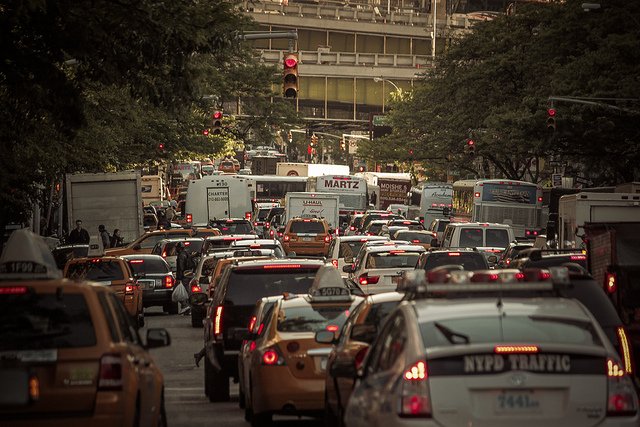MTA And City Move Forward On Congestion Pricing
June 19, 2019, 4:30 p.m.
Time for some traffic studies!

The MTA and the city’s Department of Transportation (DOT) are moving forward with preparations for implementing congestion pricing. For now, that means issuing a “Memorandum of Understanding” (MOU) on what the next steps are to get the program up and running.
This is so both agencies are on the same page when it comes to the planning, design, installation and construction of the to-be-decided type of congestion pricing infrastructure that will have to be installed, as well as to ensure the city is reimbursed for the costs.
But first things first: time for some traffic studies.
The agreement outlines that the Triborough Bridge and Tunnel Authority (TBTA, a.k.a.: MTA Bridges and Tunnels), which will operate congestion pricing, will issue a traffic study looking at the impact of variable tolling and the impact of discounts and exemptions on traffic, as well as air quality and pollution.
Both organizations will look at infrastructure design for tolling equipment and ensure it is safe, and doesn’t block the “free flow” of pedestrians or people with disabilities.
Congestion pricing is expected to go into effect in NYC in December 2020 or early 2021. The broad strokes of the plan, as passed by the state legislature, call for a toll zone in Manhattan below 60th Street, excluding the FDR Drive and the West Side Highway. Congestion pricing’s proponents predict the toll fees, which are still TBD, will generate $1 billion a year for the cash-strapped MTA.
The MTA has yet to create the Traffic Mobility Review Board, a panel of 6 representative that will recommend the cost of the toll and the exemptions, although ultimately it will be up to the MTA to decide.
“We look forward to collaborating closely with our city partners as we implement Central Business District Tolling, a first-in-the-nation program that will provide vital funding for mass transit, reduce congestion, improve air quality and make New York a stronger and more livable place,” MTA Chairman Pat Foye wrote in a statement.
The plan also requires the MTA to reimburse the city for all costs related to installing congestion pricing tolling equipment. And it requires the city to expedite any construction requests from the MTA.
“As we develop and implement the first congestion pricing program in the country, it is essential we get it right,” Mayor de Blasio wrote in a statement. “This agreement between the City and the MTA will ensure effective coordination on multiple fronts, including the safe installation of infrastructure on City streets, optimal equipment design and siting, and public engagement.”
The city will also share all locations of E-Z Pass readers in the city, DOT cameras, and fiber optic network info, while the state will hand over a data feed of all the vehicles entering the central business district, although it will anonymize identifiable information, like license plates or E-Z Pass account numbers going back to 2015.
The MTA will ultimately install, maintain, inspect and repair tolling equipment in the city.
Stephen Nessen is the transportation reporter for WNYC. You can follow him on Twitter @s_nessen.
We the Commuters is a weekly newsletter about transportation from WNYC and Gothamist. Sign up below for essential commuting coverage delivered to your inbox every Thursday.